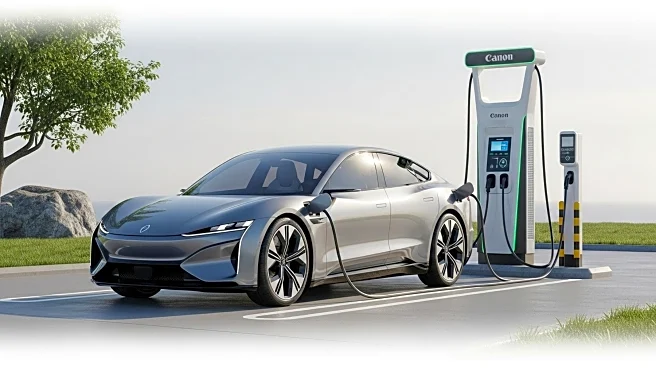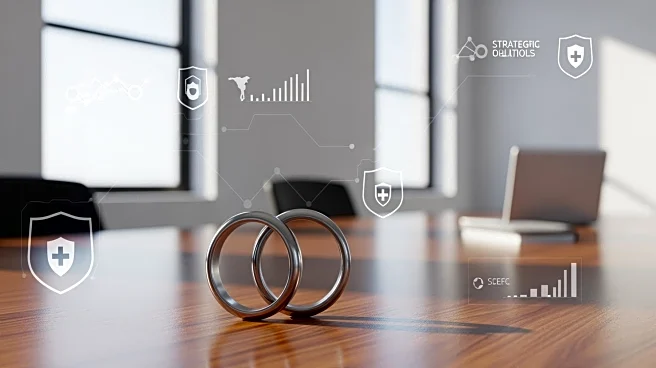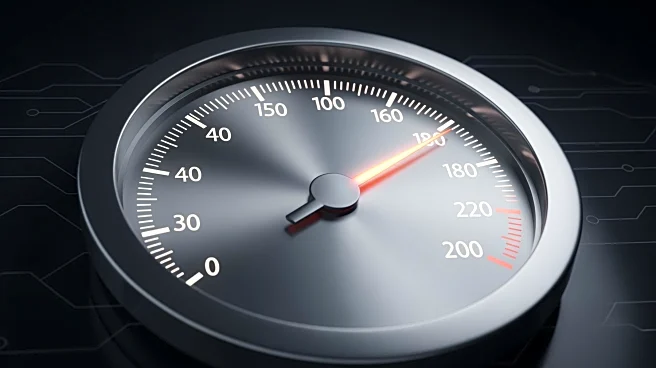What's Happening?
European carmakers are facing pressure to weaken EU CO2 emissions targets despite a surge in electric vehicle (EV) sales. The EU's emissions standards have driven significant growth in EV sales, with Volkswagen reporting an 89% increase. However, some manufacturers, notably Mercedes-Benz, are struggling to meet these targets and are lobbying for relaxed regulations. The automotive industry is at a crossroads, with the potential to fall behind in the global EV race if emissions targets are weakened. The market conditions for affordable EVs are favorable, with battery costs decreasing and charging infrastructure expanding.
Why It's Important?
Maintaining stringent emissions targets is crucial for European carmakers to remain competitive in the global EV market. Weakening these targets could hinder the industry's progress in electrification, allowing competitors from regions like China to dominate. The transition to electric vehicles is essential for reducing carbon emissions and achieving climate goals. European manufacturers must adapt to changing market dynamics to avoid losing their technological edge and becoming obsolete. The push for electrification also supports economic growth and job creation within the green technology sector.
What's Next?
European carmakers are likely to continue lobbying for concessions on emissions targets, but the EU may resist these efforts to ensure long-term competitiveness. The industry must accelerate its transition to electric vehicles, investing in new technologies and infrastructure. As battery costs continue to fall and charging networks expand, the market for affordable EVs is expected to grow, providing opportunities for manufacturers to innovate and capture market share. The EU's commitment to emissions standards will play a pivotal role in shaping the future of the automotive industry.









